|
Just one drink, so many cultures have its own way to drink. Let's look together how tea service in different cultures are like. Chinese Tea CeremonyGongfu cha or Making Tea with an effort is what Chinese Tea Ceremony is about. The Chinese Tea Ceremony emphasizes the tea, rather than the ceremony -- that the test testes like, smells like, and how one tea tastes compared to the previous tea, or in successive rounds of drinking. Ceremony doesn't mean that each server will perform the ritual the same way; it is not related to religion. Each step is meant to be sensory exploration and appreciation. Japanese Tea CeremonyChado, also known as Chanoyy and commonly referred to as the Japanese Tea Ceremony in English, is a spiritual and aesthetic discipline for refinement of the self - known in Japanese as a "do", a "way". The word "Chado" means "the way of tea". It is centered on the activity of host and guest spending a mutually heartwarming time together over a bowl of matcha tea. The purpose is to serve the guest an unforgettably satisfying bowl of tea and the guest responds with thankfulness, both of them realizing that the time shared can never be repeated and that is a "once in a lifetime" occasion. Some may see Chado as moving meditation which is not wrong. It gives a sense of mindfulness and help refocusing the current moment. (I confirm it helps distress!!). Indian Masala ChaiIn America, we generally say something like "I like a cup of chai tea". Chai means Tea. Masala Chai (simply referred to as “Chai”) has been a tradition throughout India for centuries. This spicy hot beverage is a brew of Indian black tea with a unique blend of spices, typically including cinnamon, ginger, nutmeg, cloves, cardamom and pepper, although the recipe varies region to region. Chai is consumed morning and afternoon by many Indian families, and is customarily the first thing offered to houseguests. So prevalent is the service of Chai throughout India that baristas, known as Chaiwallahs, can be found at just about every cornerm in India. British Afternoon TeaAfternoon tea was introduced in England by Anna, the seventh Duchess of Bedford. She would become hungry around 4 o'clock. The evening meal in her household was served around 8 o'clock thus leaving a long period between lunch and dinner. She began to ask that a tray of tea, bread and butter and cake be brought to her room. Then she began to invite her friends. After that, it became a fashion for high class society in England. Afternoon tea was born. Samovar and Russian LifeWith an influence from Asian Culture during the trade on Great Tea Road , Russian tea is a combination of two or three types of flavors. These different teas are brewed dark and in separate pots. When mixed together in the cup, additional hot water is added to dilute the mixture. The tea pots are designed to sit one atop of the other with the bottom pot holding the hot water. The next pot, typically, will be a very dark tea followed by a pot of herbal or mint flavored tea. Stacking the pots, not only saves space, but enables each to stay hot longer. The samovar has served as Russia's teapot since the mid-1700s. By 1800, the samovar had become a cherished focal point of the Russian household and was the centerpiece of any social gathering. Moroccan Mint Made from a combination of Chinese green gunpowder tea, handfuls of fresh mint and a liberal amount of sugar, the tea, or atai, as it's known, is a refreshing break, and the mint has both appetite-calming and digestive qualities. Tea is drunk at all times of the day, from early in the morning to an after-supper digestif, and is often served with Moroccan Cake. It is made in a metal teapot that is heated on the stove top, until it reaches a near boil. Then, it is left to stand for a short time, and may (or may not) be transferred into a serving pot, depending on where you are drinking it, and the preferences of your host. It is then brought out with an appropriate number of small glasses - these too may contain a sprig of fresh mint. Thai Ice TeaLastly, street vendors who sell Thai ice tea can be found anywhere. Thailand is hot; Thai ice tea is an excellent choice beverage. You can simply mix condensed milk to black tea and serve over ice. Or another version is sugar with black tea and serve over ice (aka. Cha dum yen).
Great Tea Road Co. Newsletter
Welcome to a beautiful Autumn. I generally love hot tea and fall is just a season for it. With a good book (or Kindle for me) and a cup of tea, it sounds really cozy right now. First thing first. Update on the products... Most of the products are updated in on the website. Price has been updated recently for 2015. Due to the value of the dollar and some price increases at the farms (and some bad harvest, low crop yield, etc). prices have increased on our website. We will always do our best to make sure we get you the best quality tea for the best pricing!. However, we hope we can decrease the price as the crop yield better result and so on. Even we increase prices on some of the items, as a thank you for your loyalty and patience with us, we offer 10% off on the entire purchase from 10/7/2015 through 12/15/2015. Please use the code below on our website when you are checking out. AutumnMN2015 Planning for 2016 Markets As we mentioned on the 2016 plan in our last newsletter, we are confirmed to be at Hopkins Farmers Market on Saturday. We are still going to be at the Minneapolis Farmers Market on some Sundays. Please follow us on Twitter or Facebook for location and time. Ways to keep in touch with us www.greattearoad.com service@greattearoad.com https://www.facebook.com/pages/Great-Tea-Road-Co/356452211143808 https://twitter.com/greattearoad Planning stage... Before heading off to Japan, I sent one of a requests directly to visit a tea farm in Nara-shi area. If you do not know about Nara, it was an old capital city of Japan back in the year 710 - 1185. By the time I arrived in Japan, I still hadn't heard anything back from this farm. I asked a Japanese landlady who I stayed with to call and to convince them to take me in. Initially, I didn't know much about them. I chose to visit this farm because of its location. This farm was nested in mountains area. Most tea in Japan grow in low elevated land due to high cost of labor and their conveniences. Not the case for this farm. Finally, they were okay to take me in and would pick me up at the train station as well. Their last comment before hanging up the phone was "we don’t speak English ". Alright, I thought to myself; I'll survive. I took 3 trains down from Kyoto (current capital city). There, an older lady was waving and waiting for me. I guess there are not a lot of people coming this way. It was only me got off the train (it was about 6-7 people total passengers). We drove about 20 minutes to the farm while I exchanged my broken Japanese and the lady was trying hard to speak English with me. Somehow, we were able to understand each other. We even laughed all the way to the farm. Going out to the tea field What I gathered when I arrived at the tea farm was that my request was unusal for them. They decided to drive me up and down to many tea fields from one mountain to another. As we talked, I learned they have been growing tea for 17th generation or roughly 400 years! (And the way they said it was no big deal). Initially, the tea they were growing was for their own consumption while growing shitaki mushroom commercially. About 100 years ago, they started selling tea commercially. In winter time, they are still growing shitaki mushroom. They would use the wood that shitaki mushrooms grew on and turn them into tea tree furtilizer. Doing this also prevent weeds because they do not use any pesticides. It is real organic tea farm. Tea Testing...
The farm produces many types of tea which is unusual for Japanese farms. Most farms process only green tea and its varieties of green tea. This farm produces Green, Oolong (in a testing period), and Black tea. Japanese Green tea is popular but it is rare to find Oolong and black tea jn Japan. I had a chance to only try their 4 different green tea. Their roasted green tea is superb. The aroma is very nice like roasted fresh cut grass with a hint of nutty aroma and the taste is very smooth. It is also very forgiving if you brew it too long or use too hot water (yes, I tried to make mistake that most people would do). I was able to get to my 6th brew for a 10 - grams of tea. Their Okumidori green tea (sencha) is different than other sencha I have tasted. Most farms would make with astringent taste which you need to get used to it. Not the case of this tea. It was very smooth and less astringent taste. By the way, Okumidori means dark green color. As you can see from the picture above, the leaves color is darker green. We are very pround of this new vendor and their teas. I hope you will try them and fall in love with their tea like we do. Our swipe-stake winner to win a gift set tea box was Katja Becker.
Please contact us to receive your tea. I had a chance to visit our vendor outside of Kyoto area. It took me 2 train rides and a bus, plus a little walk but with rain, I felt it was quite a way. It was interesting to be in the country side. As you see, the farm was really green from the rain. Very beautiful. We did many tea tastings and looked at the tea trees. I really wish you could go with me to Japan. You will love the hospitality of people and truly fall in love with the country side. While I was waiting for a bus in the country side, there was an old woman start talking to me. Finally, she shared her snack with me. I wouldn't forget this kind of experience. Not a lot of people would share a snack with a stranger. Later, she showed me where my bus stop to the tea farm. Truly amazing time. From the picture, I learned that this tea farm is applying for a UNESCO site. This is because the first tea tree, 800 years ago, was planted in Japan in this area. Would you agree to its beauty? Como Park Japanese Tea Service was once again here. It was a beautiful day for the guests to visit Como Park and to try drinking Matcha, powdered green tea, in a Japanese Tea Service style. During the performance, initially, I was too nervous. I was afraid to do something wrong. When we study tea, our tea teachers always say "it is your tea and just do your best". After my 2 seconds of hesitation, I realized I only needed to do my best. One thing you learn to do when you learn tea is meditation. My mind was very focus on the task at hand. I forgot all my surrounding for a moment and tried to do my best. It turned out just fine despite all my worries (for nothing). Our guests were very engaged and asked a lot of questions - starting from the tea house itself, tatami mat (straw mat), other events and procedures of tea, etc. It was a great event. Please contact me if you would like to learn more. I will be doing more tea service in near future as we are trying to stir tea enthusiasts in Twin Cities.
I am so sorry for not writing. It has been really busy with me - working and taking care of kids. It has been fun for me to meet customers (or anyone who wants to chat). There were many crazy weather days (rain, cold and thunderstorm). But I am still determined to be there. Thanks to my mom who took the video. I have posted our first day at the Minneapolis Farmers Market on YouTube. Please use this link: https://youtu.be/th5eIf209Ek.
Stop by to chat or for a tea tasting at our store - Pavillion 1, store S29 (every even weeks). New teas: I would like to introduce tea that can be brewed both hot and cold. New product this year is Peach Oolong & Kiwi-Mango-Passion Fruit Black tea. They are both good both hot or cold. Many customers asked me how to brew cold and made it so delicious. I never put any sweetener in my tea so you can actually taste the tea. What I do with the tea is put your tea in the infuser. Drop in the pitcher and pour water over it. Put in the freeze over night. You get a delicious cold tea next day. Easy and simple. The measurement is 1 teaspoon per 7-8 oz of water. Depending on how big of your pitcher, you will need to measure it accordingly. Another new tea is Cafe Et The (Coffee and Tea). In Old Siam (or a.k.a. Thailand), there was a custom to mix coffee with tea. The aroma is quite unique similar to caramel but with a linger of coffee. I heard from many customers who wanted to quit coffee (or drink less of them). I hope I can help easing the transitioning process. 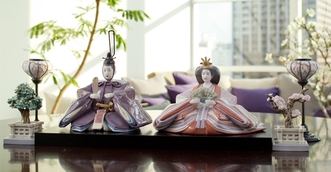 I don't know where my time went; it is already February. I have been very busy with many things. I am moving the website to a new platform. I have always wanted to give my customers a discount code but I could never do it on my current platform. New version will also give me a full e-commerce basket capability. So, you don’t need to leave the website to checkout your products elsewhere. I hope to roll it out soon. How about you? What fun activities have you been doing? My daughter was reading her magazine about Hina matsuri, Dolls Festival, or Girl's day festival. I thought it might be interesting for some of you. It is on March 3rd to pray for girls 'growth and happiness. What a nice festival specifically for girls? People display dolls just like above in their houses. Platforms covered with a red carpet are used to display a set of ornamental dolls called hina-ningyo representing the Emperor, Empress, attendants, and musicians in traditional court dress of the Heian period (794 to 1185), when the custom of displaying dolls has began. Families with female children generally start to display the dolls in February and take them down immediately after the festival. Superstition says that leaving the dolls past March 4th will result in a late marriage for the daughter. Awww... 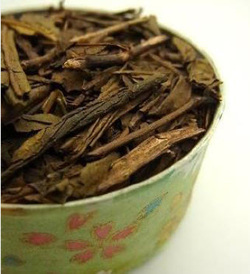 Houjicha is a type of green tea. It is roasted thus changing its property from fresh grassy aroma to earthy tone. It generally is served in Japanese restaurants because it is more neutral to go along with all dishes. Unfortunately, after being roasted, antioxidant level has been reduced but it is not disappeared. Our Houjicha is directly from a family tea farm whose has been producing tea for 7 generation (approximately, 600 years of production!). It is also USDA certified organic. Valentines Special Our Chocolate tea has always been popular because it gives such a good aroma. Recently, a customer said it smells just like"Godiva" Chocolatier. Yum! Treat yourself with a good Chocolate Tea or buy for someone you care. High in caffeine with black tea to help you energize. It is 10% discount until the end of month. Do you know our shipping fee is always $5 for MN residents? Spend more than $60 is free shipping within the US. Click on this link: http://www.greattearoad.com/special.html 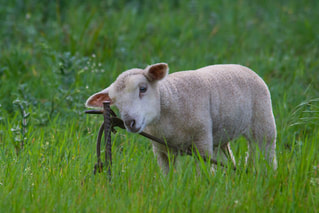 Hello from Great Tea Road. I am happy of having the first newsletter published. It starts a new year again. This year is a Sheep year in Asian Zodiac. In Japan, we would say Akemashite Omedeto gozaimasu. A Happy New year! My daughter and I have been practicing many Japanese dances. We will be a part of Japanese-American Society to perform in the Festival of Nations at St. Paul River Center on April 30 - May 3. Please stop by to see our performance if you have a chance. It should be fun to watch the show from many countries as well as to try new food. This month special: Recently, a friend of mine was telling me how to get maple syrup from our own tree. It may sound silly but I feel an attachment and do not want to damage our tree since I planted it myself. After thinking about it for awhile, I thought we could do a special on our USDA Certified Organic Black Maple. It has been cold in Minnesota with many sub-zero days. A good hot cup of tea would be nice. It is 10% off a regular price of $11.95 until 1/31/15. Here is our link: http://www.greattearoad.com/special.html A Japanese stamp with sheep knitting a scarf started 12 years ago. If you look at them closely - one is knitting a scarf (left) and one is wearing a finished scarf (right). The price of the stamp is also increased by 2 yens! I just thought it is an interesting stamp to collect. Wouldn't you agree? Lastly, many of my family members and friends are sick from this cold weather. Please take a good care of yourself. Best wishes for this year with a lot of happiness and prosperous year a head of you. Come by to say hi or just send a short note is always appreciated. www.greattearoad.com  Our last blog for 2014 but it is our new beginning into a new journey. Over the year, we usually don't talk about our decision on creating Great Tea Road. From the concept, the name of the company, the slogan, its packaging design ... and everything else has been evolving from day the first day to today. We want to say "Thank you" to all our supporters and customers who give us today. Thank you! When we looked back at Great Tea Road (GTR) mission statement, we have always wanted our customers to have a trust in the company's products. As mentioned in "Who are we?" page, GTR's mission statement is based around Chanoyu (Japanese Tea Ceremony); purity is a big part of the ceremony. Many times, as a practitioner, we symbolize it by cleaning our utensils (several times during a procedure). Tea Ceremony is also based on Zen. Purity, to us, means more than just cleaning utensils. It also means cleaning our hearts, bodies, and souls. It is an intention - a good intention. Today, we are proud to say that GTR is now offering USDA Certified Organic in several products. We finally fulfilled one of our dreams. It is to have a good intention by ensuring our customers with our high quality teas and directly from tea farms for its freshness. Again, thank you so much for being here with us. 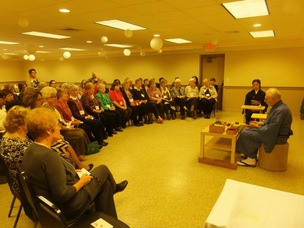 With a fellow tea associate, we provided a tea demonstration to Knight of Columbus group. It was 56 ladies. To be appropriate with season, we did Tsuki Chabako, Autumn picnic tea. We were unable to provide 56 tea bowls in the room. Only way they could get their participation was to provide tea sweet and let them eat with me (as a guest in dark blue Kimono, in picture). It all turned out well. After we did the tea ceremony, the question and answers went on for a good fifteen minutes or so. One of the participants was wondering about tea and its calming property. Tea started its journey off as medicine but later on it has become a beverage. Here's what some studies have found about the potential health benefits of tea (credited to WebMD): Green tea: Made with steamed tea leaves, it has a high concentration of EGCG and has been widely studied. Green tea’s antioxidants may interfere with the growth of bladder, breast, lung, stomach, pancreatic, and colorectal cancers; prevent clogging of the arteries, burn fat, counteract oxidative stress on the brain, reduce risk of neurological disorders like Alzheimer’s and Parkinson’s diseases, reduce risk of stroke, and improve cholesterol levels. Black tea: Made with fermented tea leaves, black tea has the highest caffeine content and forms the basis for flavored teas like chai, along with some instant teas. Studies have shown that black tea may protect lungs from damage caused by exposure to cigarette smoke. It also may reduce the risk of stroke. White tea: Uncured and unfermented. One study showed that white tea has the most potent anti-cancer properties compared to more processed teas. Oolong tea: In an animal study, those given antioxidants from oolong tea were found to have lower bad cholesterol levels. Pu-erh tea: Made from fermented and aged leaves. Considered a black tea, its leaves are pressed into cakes. One animal study showed that animals given pu-erh had less weight gain and reduced LDL cholesterol. Contact us if you want to have a wonderful experience with Japanese Tea Ceremony.
All content and images are the property of Great Tea Road (R). No copies allowed without our permission. All right reserved.
Tea is quiet and our thirst for tea is never far from our craving for beauty. ~James Norwood Pratt This is my last volunteering event of the year at the Como park. I was pretty busy taking care of our guests such as showing the way, how to wash hands, changing their shoes, going into the tea house, making tea, etc.
I totally forgot to take photos of the atmosphere within the tea house itself. Unlike British tea party, the event is quiet and calm. You would emerge yourself with the surrounding and feel truly somewhere else, not St. Paul, Minnesota. Unfortunately, with the 100th year anniversary of the carousel, we could hear the music playing all day long. Totally wrong theme of music for the day! Despite all the noises and music, please enjoy the nice pictures of the tea house itself. All content and images are the property of Great Tea Road (R). No copies allowed without our permission. All right reserved. From Bangkok, we flew up north to Chaingmai and drove up the mountain to Angkhang. It is a border small village between Thailand and Myanmar (Burma) with an elevation of 1928 m. (6325 ft.) above the sea level. The area is called "Little Switzerland of Thailand" due to cool climate and mountain scenery. It was not easy to go up there with lots of 120 degrees turns.
We visited a tea plantation and tasted our tea to make sure they are high quality. After I tasted their Oolong, I felt in love with it. It was very smooth, no bitterness, and its aroma is like a flower. Moreover, I trusted the tea from this area because it is under the the Royal King Foundation. This Oolong tea is Thailand's certified organic as you can notice some dark spots on tea leaves at the tea farm (picture above). A little history about the Royal King Foundation was that King Bhumibol Adulyadej was visiting the area in 1969 and noticed a lot of Opium growing by hill tribes back then. He purchased the land and set it up as the first research for agriculture. He turned the Opium village then to a beautiful fruit, vegetable and tea farms as we see today. There is no more Opium growing in the area- if that what you are curious about. All content and images are the property of Great Tea Road (R). No copies allowed without our permission. All right reserved. 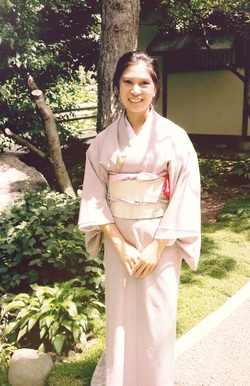 This week, I had a chance to help out with Japanese Tea Ceremony at Como Park. Standing inside the garden, I felt I was in a different world. It was very peaceful and I could leave all my worries behind. It gave me a sense of purpose and "be in the moment". The Japanese Tea Ceremony can be considered as art or discipline. As an art, The Tea Ceremony is an occasion to appreciate the simplicity of the tea room’s design, the feel of the Chawan (Tea bowl) in the hand, the company of friends, and simply a moment of purity. As a discipline, aesthetic contemplation of flower arranging, ceramics, calligraphy, and the roots of the Tea Ceremony which go all the way back to the twelfth century is required. The ritual preparation requires the person hosting a tea party to know how to cook a special meal (Kaiseki), how to arrange the flowers which will be placed in the above (Tokonoma). When choosing utensils and other vessels, the host (Teishu) has to consider the rank and type to make sure that they will stand out. From the picture above, one of my friends asked me why I didn't put on any makeup. In fact, I did but it could be a "discipline part" that kicked in. As a host, one should not be wearing any jewelry as it draws guests' attention away from its purpose during tea ceremony. My thought was based on this rule, I decided to put on make up lightly. My guests should be the ones who gain all my attention, not me.
We love meeting with our customers and learning about them. It seems there are a lot of customers who do not know what "tea" is.
In a nutshell, it is from a plant call Camellia Sinensis. All teas come from the same plant. Herbal teas are not from Camellia Sinesis plant, just from other plants such as herbs, flowers, etc. What makes each tea type (White, Green, Oolong, Black, Puerh) different is how to process them. Of course, how each country production style and its climate make a big different on its taste and aroma. It is rare to grow tea in the US. Ones that we know: North Carolina, Hawaii and Washington State. Tea plants love hot days and cool nights for them to grow and of course they love high mountain climate for the best result. Here is a basic tea type: White White tea tastes as close to a freshly plucked leaf as you’ll get, since the leaves are never oxidized, just withered and baked dry or air-dried. White teas have a delicate flavor and can be expensive, which is why they’re not often used for blending. Green After the leaves are picked, they’re steamed to retain their green color as well as their trademark vegetal flavor. After that, the leaves are withered, then rolled and twisted, and then either re-steamed (the Japanese favor this method, which preserves vegetal quality) or pan-fried, which can sometimes give the tea a yellowy-tinge and smoky aroma. Oolong After harvesting, oolong leaves are withered and then gently tossed manually or by machine in a basket in order to bruise the edges of the leaves and oxidize them. This, however, can create a range of styles with some oolongs with less oxidation that can taste like green tea, and others with lots of oxidation that can taste more like black tea. After being tossed, the leaves are then gathered in a cloth and rolled under metal plates until they form tiny nuggets. Black Black tea leaves are completely oxidized by processing them through metal rollers, which break up the leaves, stems and opens the veins (which is why black tea tends to be so tannic). After the leaves have fully oxidized for up to 18 hours, they go through hot-air heaters to cauterize the broken veins. As a result, we do not grow tea plants in Minnesota. (I don't think they love our lakes or snow like we do). Finally, the weather is much better in Minnesota - barely any snow on the ground. My kids start to go out and bike around the neighborhood. As a mother, I want my kids to enjoy their treats without taxing their health on sugar. Today, I decided to make Green Tea Ice Cream. Here is my recipe:
2 tbsp matcha 2/3 cub sugar (standard but you can reduce if you want it less sweet) 3 egg yolks 3/4 cub milk 3/4 cub heavy cream 1. Dissolve Matcha with hot water 6 tbsp 2. Add sugar with egg yolks and mix them well. Cook them with Medium-low for about 10 minutes until you see it starts bubbling 3. Add Matcha green tea from step#1 4. Strain it for a smooth batter. Then refrigerate until cool. 5. Add green tea mixture to heavy cream and combine them well 6. Put in the ice cream machine for about 20 minutes (or put in the refrigerator afterward). Ta-da, enjoy your ice cream. Many of my friends know how much I love anything about "tea".
What is Japanese Tea Ceremony then? "By these words, Sen Rikyu established an essential concept in chado (Japanese Tea Ceremony), the way of tea. Chado has developed over the more than four hundred years since the time of Rikyu so that host and guests might share a bowl of tea in a comfortable atmosphere conducive to mutual exchange. Based upon a prescribed set of movements, unique utensils, and Japanese traditional history and culture, participation in tea gatherings can certainly appear daunting. However, as long as the guests can appreciate and enjoy the moment shared over tea with the host, then the tea gathering is a success. From four hundred years ago until today, all over the world, such gatherings occur. The exact method and style varies depending on the host, location, and season, yet the fundamental purpose remains unchanged". I am writing this blog because I am so honored to be a Teaching Assistant for a Japanese Tea Ceremony class at University of Minnesota (Extension course). In class, we discussed on how tea ceremony being developed, its concept, its influence, and how to perform it. Students then got a chance to perform a mini tea ceremony. Though, one cannot be a master in just one practice. Like everything else, it is a life-long learning. Why should we spend time learning Japanese Tea Ceremony? Or how does practicing Japanese Tea Ceremony enhance our lives? It is a communion between host and guests, in an environment designed to still the mind. The tea is served ritually, and the participants appreciate the aesthetics of the setting and the unique utensils. Besides an art of hand movement in tea ceremony, throughout all of the ceremony are four guiding inspirations: wa, kei, sei, jaku — Harmony, Respect, Purity and Tranquility. Hidden within the relative simplicity of these words is a subtle and profound philosophy that can facilitate great transformation in our lives. Chanoyu is beneficial for all aspects of our being: physical, mental, emotional and spiritual. Chanoyu heightens our awareness of the sacredness of our daily activities. It helps us to focus on the details of our life with wonder and freshness. Similar to what we believe at Great Tea Road: Your Journey begins with Our teas. "In my own hands I hold a bowl of tea; I see all of nature represented in its green color. Closing my eyes, I find green mountains and pure water within my own heart. Silently sitting alone and drinking tea, I feel these become part of me. What is the most wonderful thing for people like myself who follow the Way of Tea? My answer: the oneness of host and guest created through 'meeting heart to heart' and sharing a bowl of tea." - Dr. Soshitsu Sen, Urasenke Grand Tea Master XV Credit: Urasenke organization, Japan. Green star Co-op.
Disclaimer: We are not associated with any tea organization. I always feel guilty for throwing good tea away after brewing especially Oolong tea. Unlike many of other teas, our Jade Oolong tea is handpicked. The best pick would consist of top 3 leaves; they are young leaves. You can also see they are full leaves (photo below). So today, we are making Jade Oolong Teapura. It is easy to make and it is good for snack. Noted that after 1st brewing, 75% of caffeine has been eliminated. We are using 3rd brewing, so there is practically no more caffeine in the tea.
Things you will need: Jade Oolong tea 4 teaspoons Tempura batter 1 cub Water 3/4 cub Tempura flakes 1 cub Cooking oil about 1 cub Salt and sugar to taste 1. Brew Jade Oolong tea at 180F for 3-4 minutes (your first brew). Our Jade Oolong tea is a high quality tea, you can do multiple infusions. The tea leaves will expand because they were hand-rolled into balls. You might want to do it twice separately unless you have a big tea pot. I recommend you to brew at least 3 times before cooking this dish. No need to let tea leaves dry. In a meantime, enjoy your Jade Oolong tea but don't discard your tea leaves; we can use for next steps. 2. Mix tempura batter: 1 cup per 3/4 water. (Please also read cooking direction on your batter bag, it may give a variation of water needed). 3. Put tempura flakes in a separate bowl 4. Heat oil in the pan at medium heat. 5. Dip Jade Oolong tea into batter and tempura flakes, deep fry in the cooking oil until it is golden brown. Remove to a plate. 6. While it is still hot, dash salt and sugar on to Jade Oolong teapura. 7. Repeat step 5 and 6 until you cook all your tea leaves. 8. Voila, you got yourself a snack. It is crispy with floral aroma in your mouth. |
Disclaimer: We are not associated with any local or oversea tea organization.
AuthorStaff at Great Tea Road Co Archives
April 2024
Categories |
|
Contact Info
service@greattearoad.com (612) 433-7723 Address: 1816 Mainstreet Hopkins, MN 55343 |
In Store Hours
Tuesday - Saturday 08:00 AM - 4:00 PM ** Please check Google before visiting in case the operating hour has changed. |

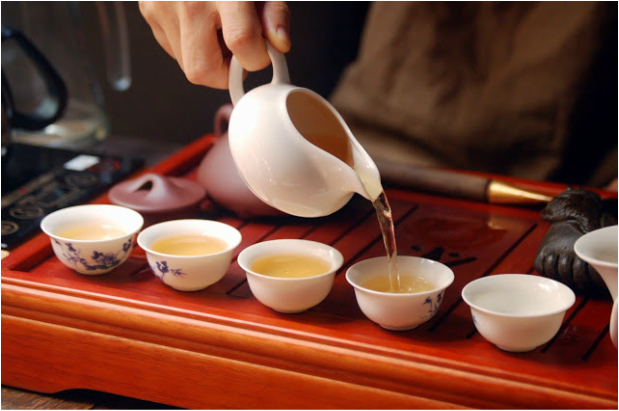
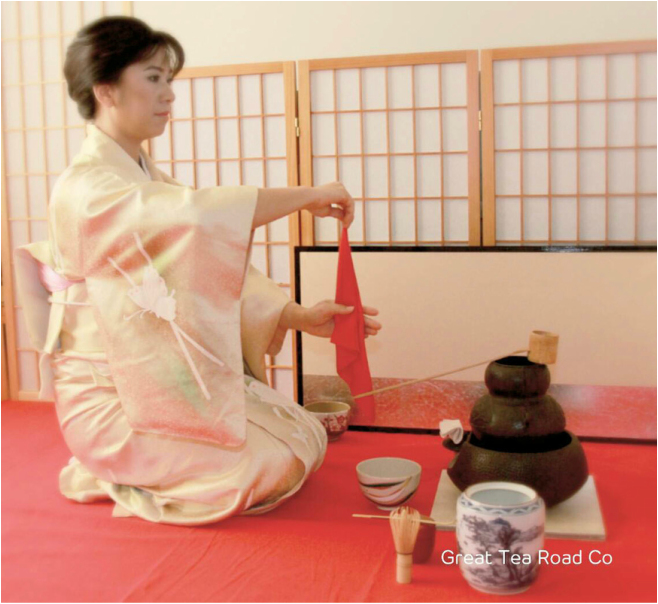
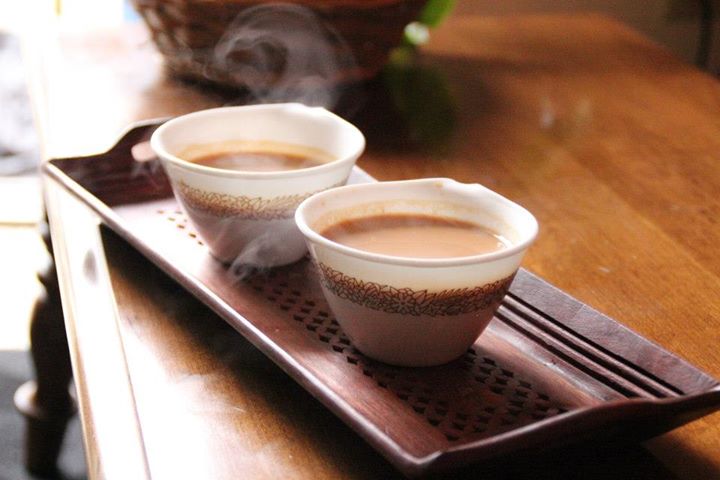
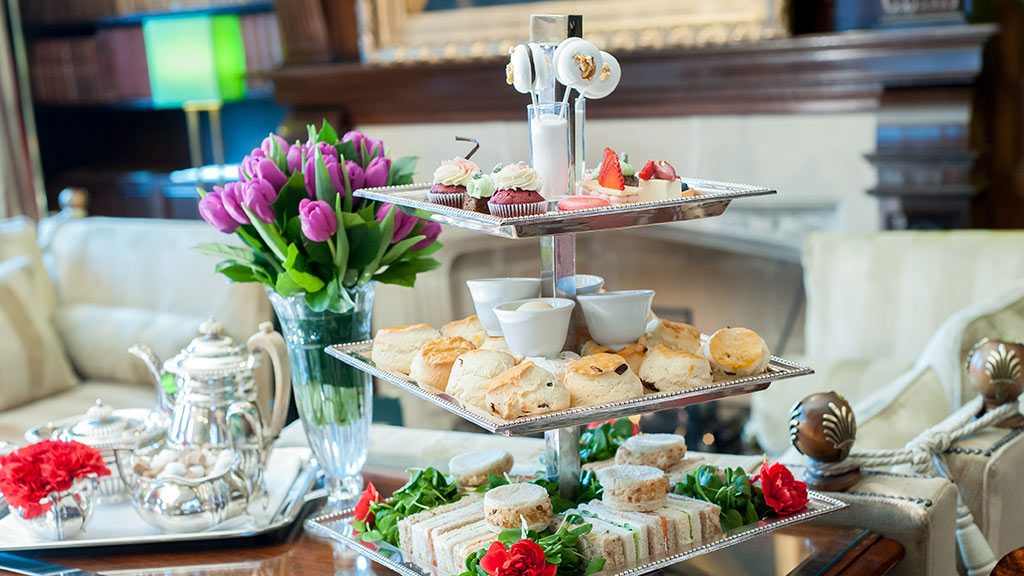
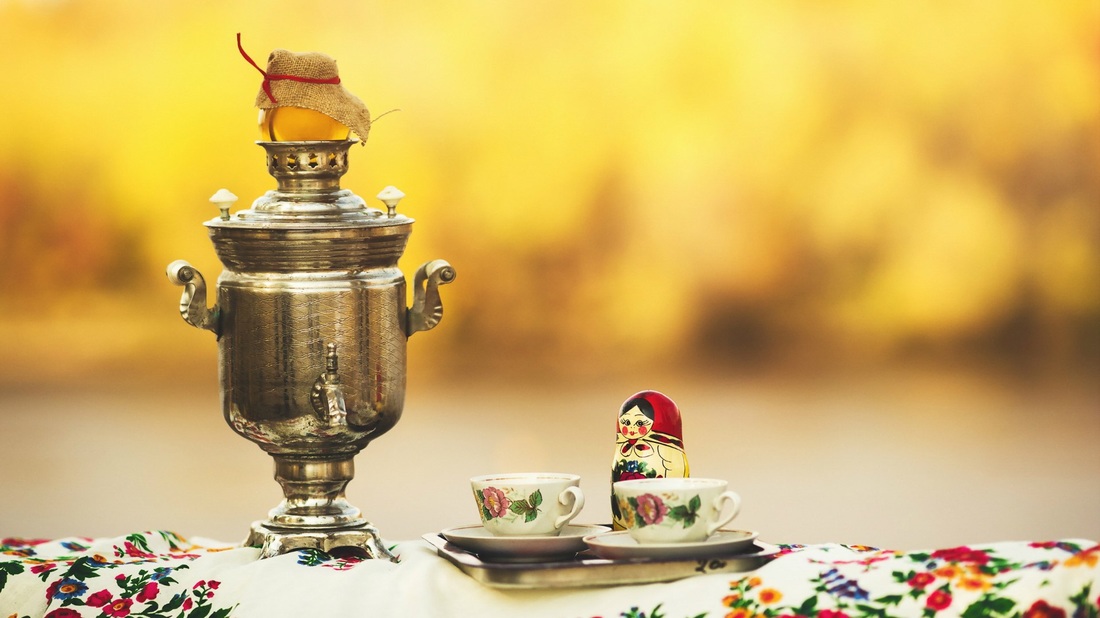
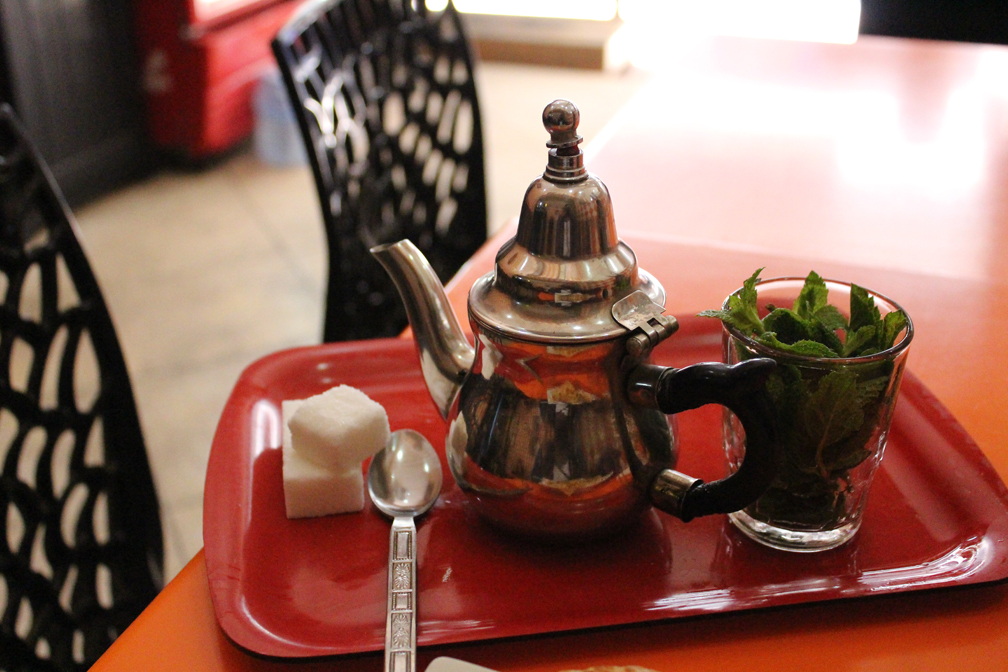
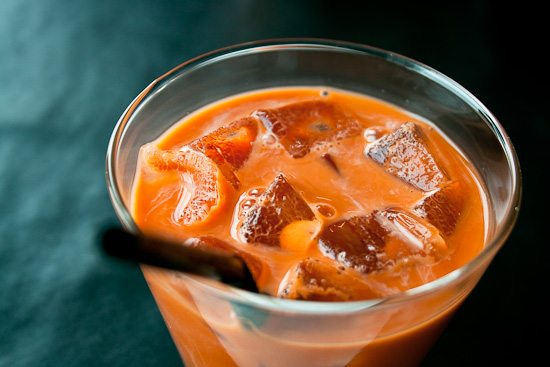
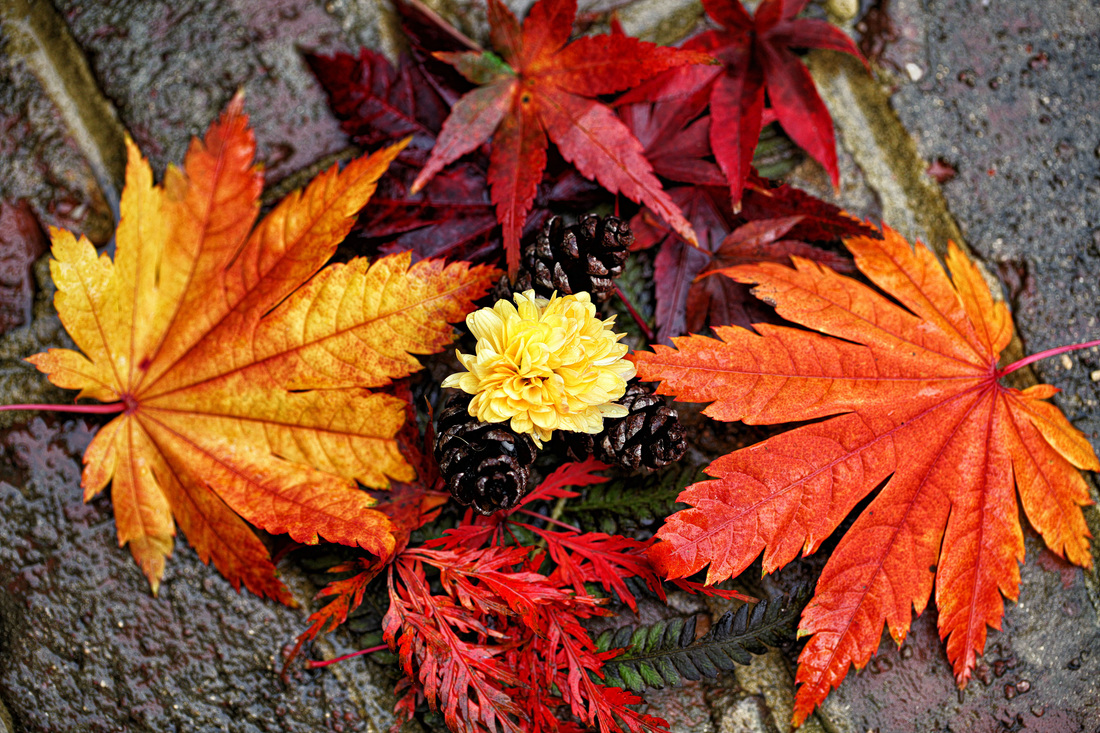
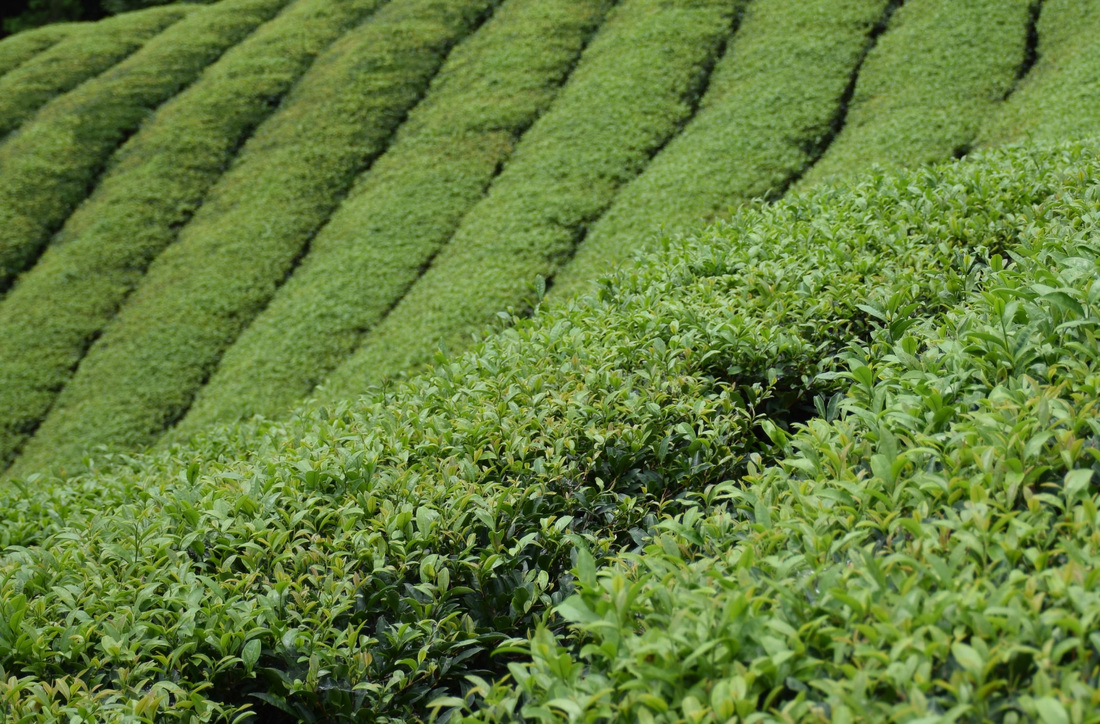
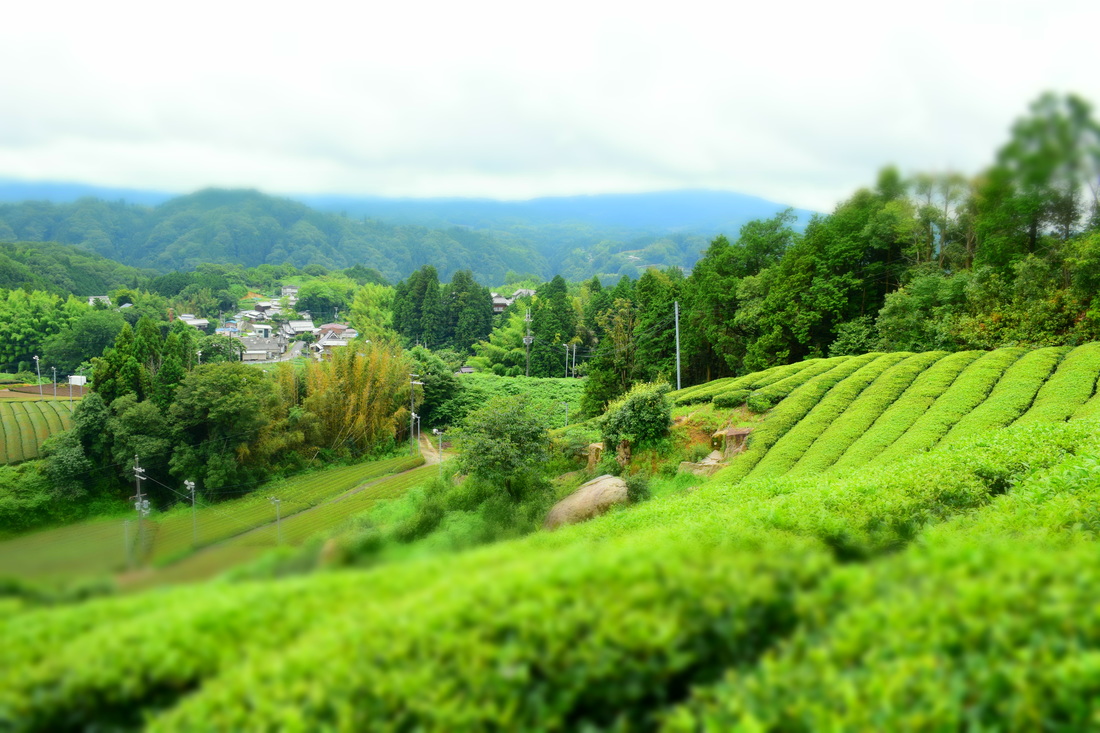
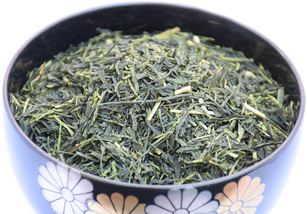
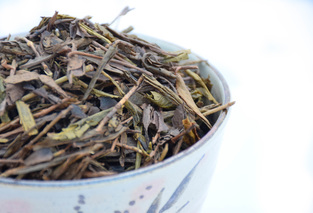
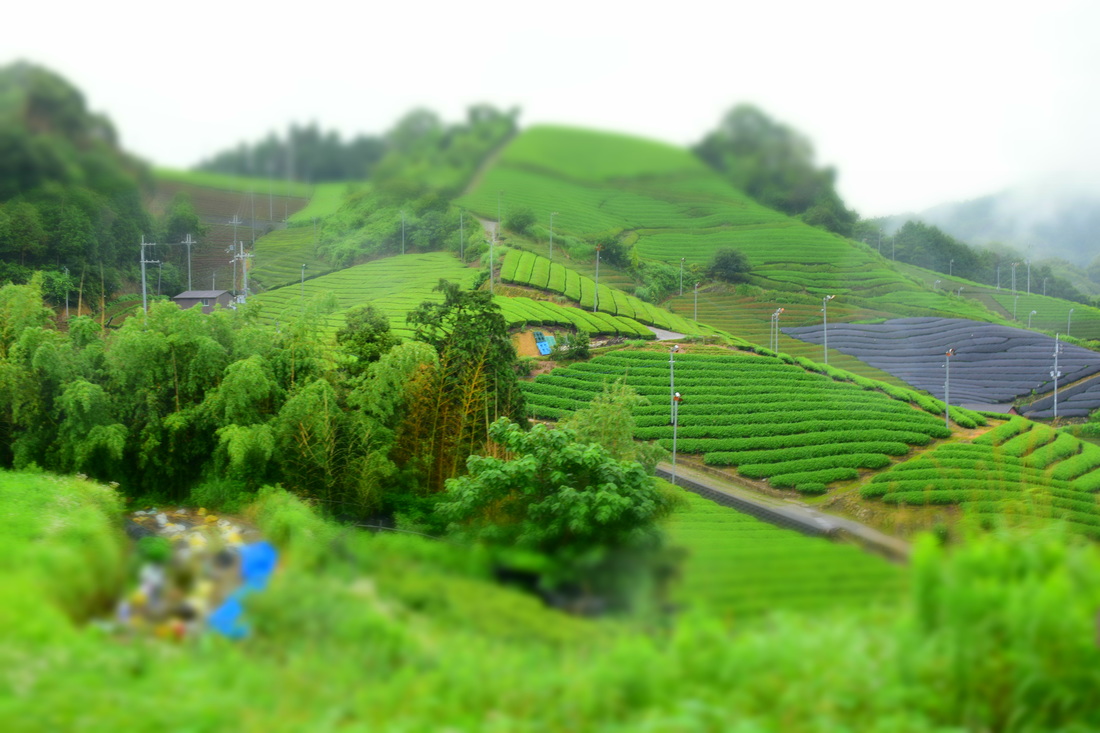
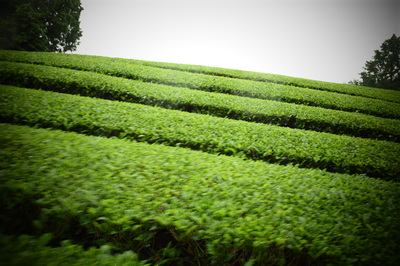
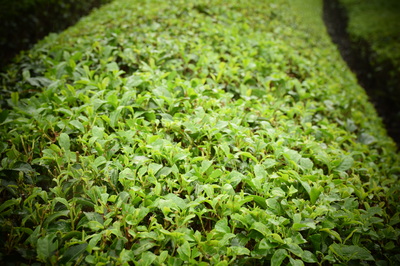
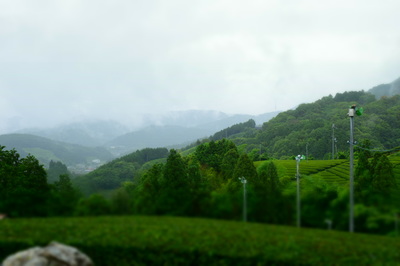
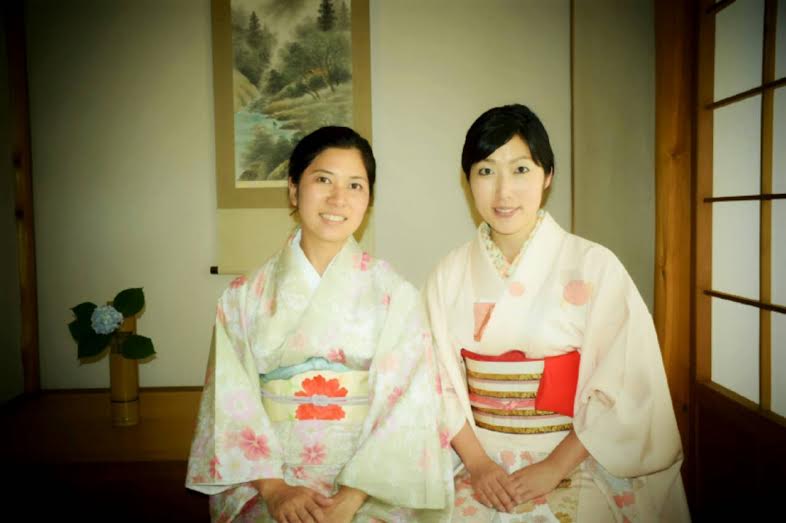
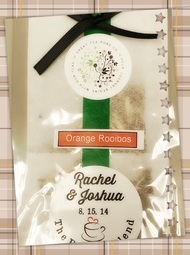
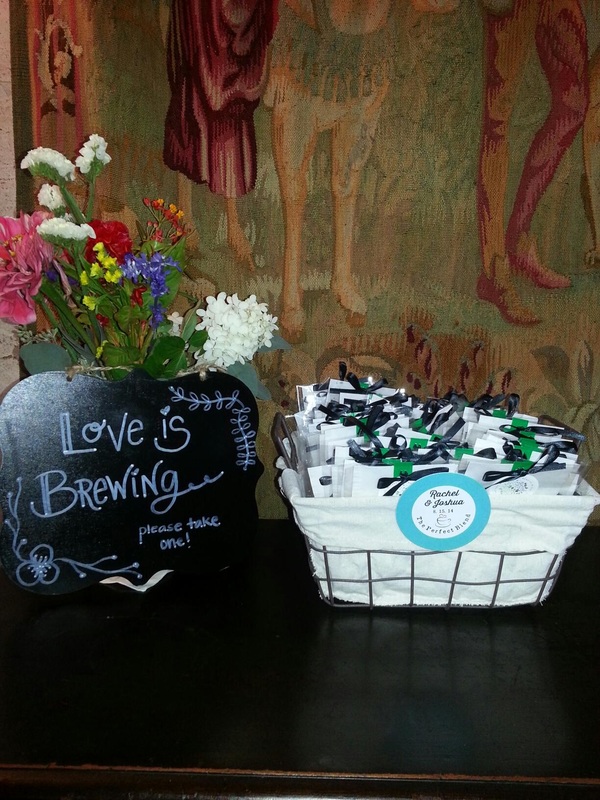
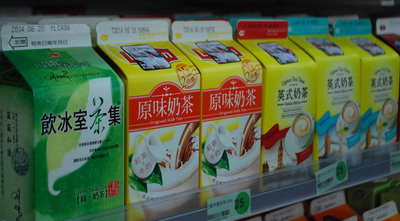
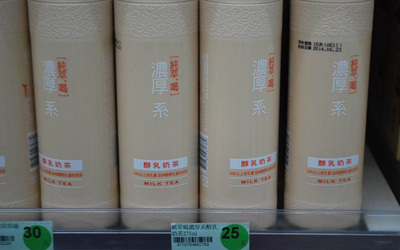
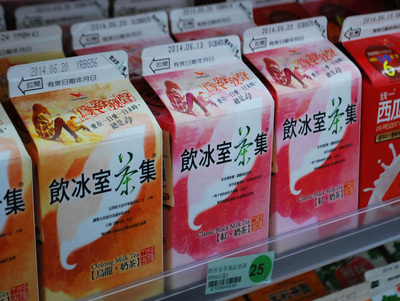
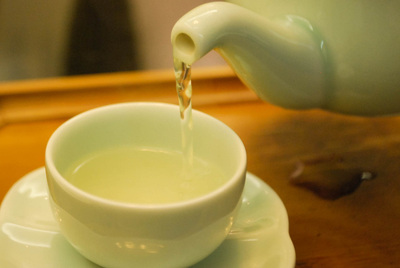
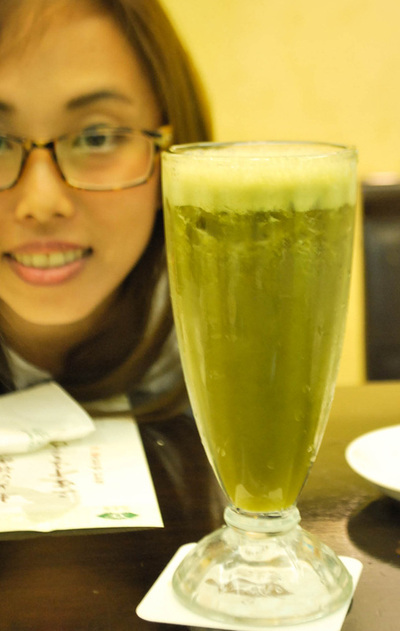
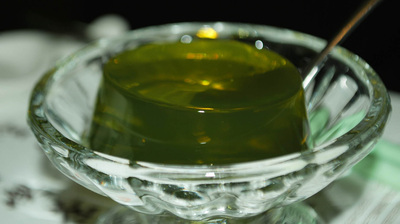
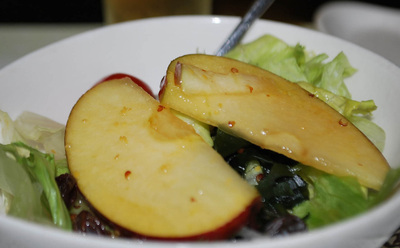
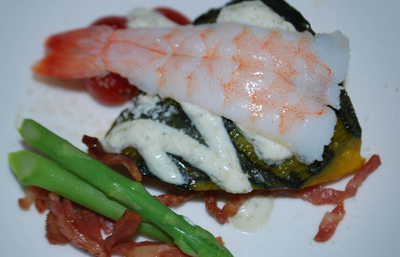
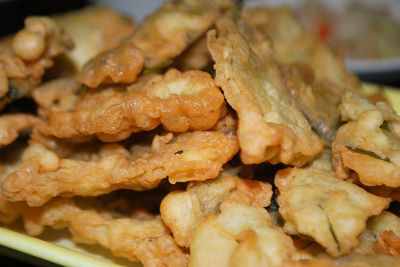
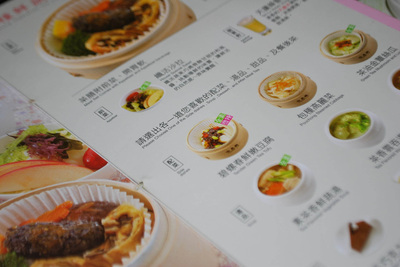
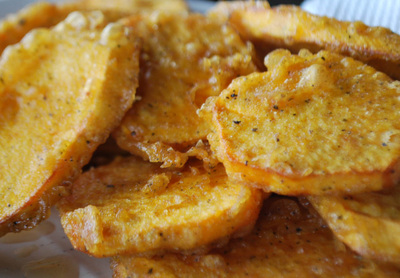
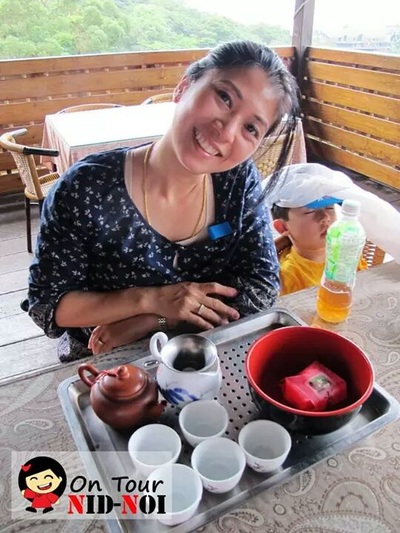
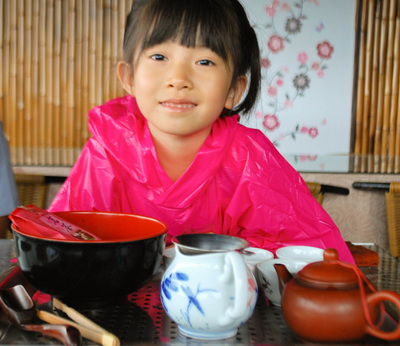
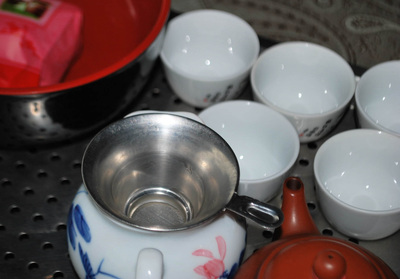
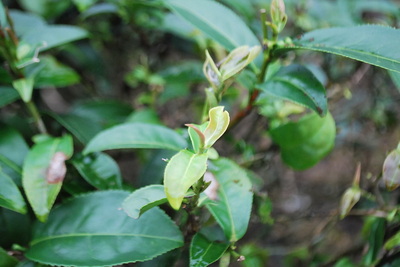
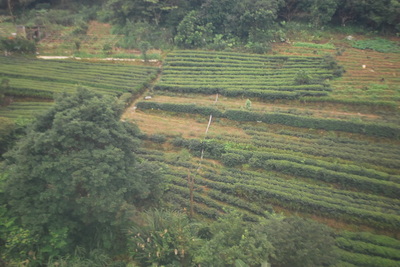
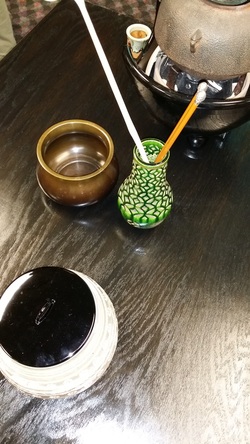
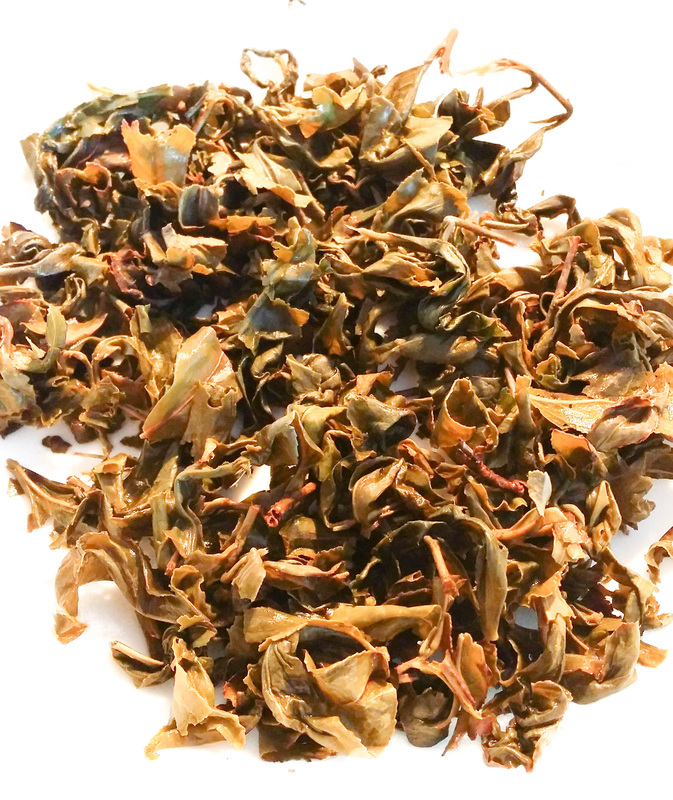
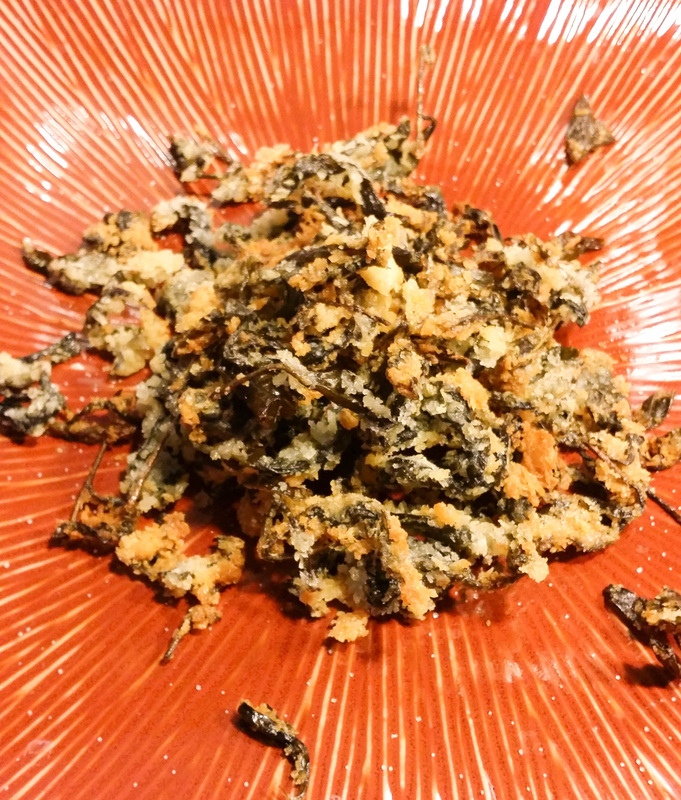
 RSS Feed
RSS Feed
